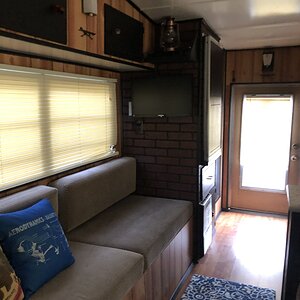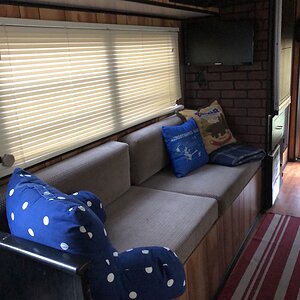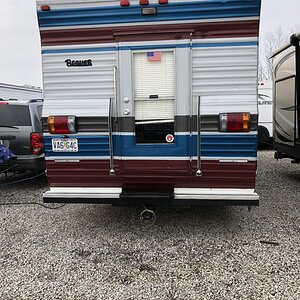We're interested in purchasing our first ever motor-home: a 2019 Winnebago Forza 34T with 22K miles
Winnebago brochure says GVWR is 26,000, GCWR is 30,000
By my math, that means it can only tow 4000 lbs. But -
A previous search found it has hitch weight 10,000.
RV-USA specs say tow capacity is 5000 lbs.
Another dealer's info sheet says cargo weight of this type of motorhome is 3382 lbs
There is a fair amount of discrepancy between various sources of information.
Since we're selling our seasonal home in FL to buy this motor home, we'd like to bring a number of items with us back to our full-time home in Maine.
Can this unit comfortably tow my 2015 1/2 ton with GM's quoted curb weight between 4702 and 5155 lbs, while maxing the GVWR?
My definition of "comfortably tow" means no significant problems going up/down hills AND no damage to the motorhome. Thanks for any help.
Winnebago brochure says GVWR is 26,000, GCWR is 30,000
By my math, that means it can only tow 4000 lbs. But -
A previous search found it has hitch weight 10,000.
RV-USA specs say tow capacity is 5000 lbs.
Another dealer's info sheet says cargo weight of this type of motorhome is 3382 lbs
There is a fair amount of discrepancy between various sources of information.
Since we're selling our seasonal home in FL to buy this motor home, we'd like to bring a number of items with us back to our full-time home in Maine.
Can this unit comfortably tow my 2015 1/2 ton with GM's quoted curb weight between 4702 and 5155 lbs, while maxing the GVWR?
My definition of "comfortably tow" means no significant problems going up/down hills AND no damage to the motorhome. Thanks for any help.












